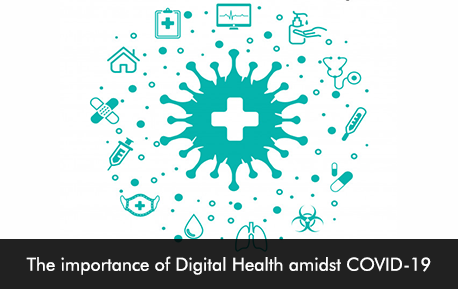Technology and digital health are becoming a prominent part of the healthcare sector like hospitals, healthcare professionals and patients see its many benefits. A new survey from Accenture highlighted that people want to embrace technology and take part in their healthcare process by monitoring their health through wearable health devices and are more likely to visit physicians that offer virtual care services. If you want to become a successful practice in the future then this is the time to embrace digital health to take you a step ahead in terms of patient care and keeping patients satisfied.
Digital health is expected by patients
The number of patients who use mobile apps to manage their healthcare needs has tripled in just four years. The increase in number suggests that health and wellness apps are seen as important tools by patients to take care of their health and maintain a fitness routine. Patients are also using EMR software patient portal services to stay connected with their health. They use the robust platform to stay up to date regarding information related to lab results, prescription history, and notes from clinicians. According to American Well, 20% of healthcare consumers are willing to switch primary care providers for telecommunications technology. Digital healthcare tools play a vital role in enhancing customer experience and keeping them satisfied throughout their care journey. If your medical practice has inhibitions using technology then you will also lose out on your existing patients as they will prefer going to doctors who offer convenience through digital health tools.
COVID-19 and digital health
Due to the COVID-19 pandemic healthcare organizations have rapidly embraced Telemedicine EMR Software solutions and artificial intelligence to offer better care to patients and reach out to patients remotely and also reduce their costs. With emerging technologies, primary care physicians have realized efficiencies in their daily workflows. Digital health includes Artificial Intelligence (AI) technology which replicates human interactions and cognitive automation which helps in virtual triage and patient intake. The virtual triage is based on the information that is filled by the patient online before the appointment and the data in the Electronic Medical Records (EMR) Software system. The data is analyzed by algorithms to identify patients that need treatment.
Governments and healthcare professionals have been urging people to practice social distancing and avoid non-urgent trips to the hospital to minimize contact and spread of the virus. Doctors, therapists, and pediatrics are using telemedicine virtual sessions to connect with their patients from the comfort of their homes. These sessions help to provide effective diagnosis and treatment without having to compromise on their health. Patients with underlying health conditions are prone to catch the virus and staying connected with their healthcare provider during this crisis helps them to receive ongoing care.
Moving ahead
High quality of care can be ensured to patients as doctors can easily share information due to interoperability with other healthcare providers to provide improved diagnosis and treatment suggestions. Digital health technology can make you progress with greater efficiency levels, boosting job satisfaction, and patient outcome levels. If your practice hasn’t embraced technology it is time to leap into a medical digital world.







